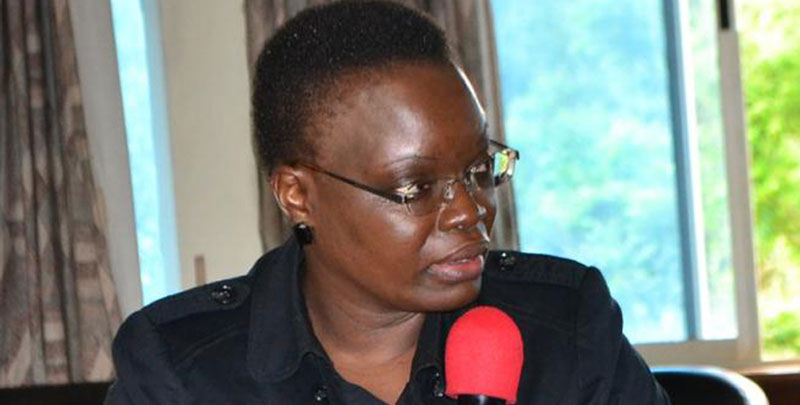Dear Partners,
Greetings from FIDA Uganda, Kindly see below our ??Statement on Public Service Establishment Notice No.1 of 2017.
FIDA – Uganda hereby issues this statement with regard to unfair disciplinary action that was taken against Ms. Rosemary Namuwanga a court clerk / interpreter attached to Kasangati Court over allegations of inappropriate dressing in violation of Public Service Establishment Notice No. 1 of 2017.
We have made attempts to get in touch with and get the facts from Ms. Namuwanga but probably because of the threat of further disciplinary action expressed by the Senior Communications Officer of the Judiciary His Worship Mr. Solomon Muyita).
After extensive internal consultation we have agreed, as an organization to make a statement on this matter without the consent or participation of the person affected in the public interest and for the greater good.
FIDA Uganda cannot avoid a discussion over the manner in which application and/or enforcement of “decent” or “appropriate” dress codes affect women disproportionately compared to men and the abuse of women’s rights such codes tend to promote.
We are aware that the Public Service Director of Human Resources in the Ministry of Public Service, in a bid to “improve the image of the Public Service “issued a Public Service Establishment Notice No.1 of
2017 on a dress code for all male and female employees of the Public Service. For most of us feminists this did not go down well because we know that most dress code regulations usually target women and indeed
for the most part, these regulations targeted women’s hair style and color and dress length and fit. We did not comment at the time as we preferred to monitor how it would be enforced.
THE PROBLEM WITH ESTABLISHMENT NOTICE NO.1 OF 2017
Below are some of the reasons we take issue with the above Notice whose intention is to establish a dress code among non-uniformed staff in the Public Service in a bid “to improve the image of the public service.”
(1) When one ranks the reasons that affect the image of the public service, the manner of dress falls way below far more pressing issues such as corruption, poor/delayed service delivery, favouritism and nepotism to mention a few. Further, there is no link between effective and efficient service delivery and the manner of dress.
(2) The Notice appears to have taken immediate effect and the culprits so far identified tend to be junior staff. In particular, given the high incidence of Ugandans suffering from multidimensional poverty and high dependence ratio, we believe that the notice puts undue pressure on civil servants to focus on purchasing clothing that they can ill afford.
Most lower income public servants build their wardrobes over several years. To be suddenly required to conform to a new regulation with financial implications means that many will no doubt be culprits of what is deemed ‘inappropriate’ dressing.
The Public Service Ministry issued the Notice without giving staff (especially those among the lower cadre who earn less) an opportunity to adjust their wardrobes, and neither were they provided with a dress allowance.. It is therefore unfair to target particularly low-income public servants as violators of the Notice.
(3) The Notice is sexist and discriminatory. Whereas men are only cautioned against wearing open shoes and tight fitting pants, women face a barrage of “what not to wear”
(4) Dressing is a human right and a form of expression. As such the notice violates the freedom of expression. Regulating what is considered decent and appropriate (a determination that is largely based on outdated patriarchal norms of conformity and conservatism) leaves discretion to the enforcer. Whenever there is discretion granted there is a risk of abuse of the discretionary power.
(5) Dress codes tend to open the door for people to violate the rights of women because they reinforce the objectification of women. Such codes increase opportunities for the sexual abuse of women because they tend to reinforce the “sexual assault culture” where men are portrayed as too weak to control themselves, while women are portrayed as lascivious Jezebels out to ensnare men.
Under such circumstances, regulations are to be imposed on women so that men are not seduced or distracted by women. The dress code is thus used to remove the responsibility for self-control from men and while placing the burden on women to ensure that their clothing does not attract sexual abuse from men, nor distract them from their duties.
Munduru Mercy Grace MANAGER, PROGRAMS
FIDA UGANDA IS A LEADING WOMEN’S RIGHTS ORGANIZATION THAT ADVANCES GENDER EQUALITY THROUGH THE PROMOTION OF WOMEN’S HUMAN RIGHTS.








